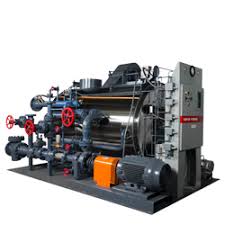
Noy . 05, 2024 02:02 Back to list
what is hot water boiler
Understanding Hot Water Boilers A Comprehensive Overview
Hot water boilers are essential components in various heating systems, primarily used for providing hot water for residential and commercial purposes. Their efficiency and effectiveness make them a popular choice across numerous industries. In this article, we will explore what a hot water boiler is, how it operates, the types available, their applications, and the benefits they provide.
What is a Hot Water Boiler?
A hot water boiler is a closed vessel designed to heat water and distribute it for various purposes. The primary function of the boiler is to convert energy (from natural gas, oil, or electricity) into heat, which is then transferred to the water circulating through the system. Unlike steam boilers, which produce steam for heating and industrial processes, hot water boilers generate hot water, providing a steady supply of warmth for radiators, underfloor heating, or direct domestic use.
How Does a Hot Water Boiler Operate?
The operational principle of a hot water boiler is relatively straightforward. It begins with the water in the boiler being heated by a combustion process—usually involving a fuel source like natural gas or oil. As the water absorbs the heat, it rises in temperature and is circulated through pipes to heating elements throughout the building.
The system includes various components, such as
- Burner The part that mixes fuel with air and ignites it to heat the water. - Heat Exchanger A vital component that allows the transfer of heat from the burner to the water in the boiler. - Pump Responsible for circulating hot water through the system to various outlets. - Expansion Tank Accommodates the increased volume of water as it heats up, preventing excessive pressure buildup. - Thermostats and Controls These regulate the temperature of the water and the operation of the burner and pump.
Once the water reaches the desired temperature, it is distributed throughout the building, returning to the boiler to be reheated as necessary.
Types of Hot Water Boilers
Hot water boilers can be categorized based on several factors, including their fuel source, design, and application. Here are the primary types
1. Fire-Tube Boilers These boilers feature a series of tubes submerged in water. Hot gases produced by combustion pass through the tubes, heating the water surrounding them.
what is hot water boiler

2. Water-Tube Boilers In this design, water circulates through tubes heated by combustion gases. This type is typically used in larger applications, as it can achieve higher pressures and temperatures.
3. Combination Boilers (Combi Boilers) These boilers serve dual functions they provide hot water for heating as well as domestic hot water on demand, making them ideal for smaller spaces.
4. Electric Boilers Utilizing electrical resistance, these boilers heat water directly without the need for combustion, offering a cleaner and quieter operation.
Applications of Hot Water Boilers
Hot water boilers are versatile and found in various applications, such as
- Residential Heating Homeowners utilize hot water boilers for central heating systems, ensuring comfort during colder months. - Commercial Buildings Offices, hotels, and schools rely on hot water boilers for heating, cleaning, and hot water supply. - Industrial Processes Manufacturing facilities often use hot water boilers in processes that require regulated heating, such as food processing, chemical production, and textile manufacturing.
Benefits of Hot Water Boilers
Investing in a hot water boiler comes with numerous advantages
- Efficiency Modern boilers are designed to achieve high efficiency ratings, leading to reduced energy costs. - Comfort They provide consistent heating, contributing to a comfortable living and working environment. - Durability With proper maintenance, hot water boilers can last for many years, providing reliable service. - Environmentally Friendly Options Many new models meet stringent environmental standards, helping to reduce the overall carbon footprint.
Conclusion
Hot water boilers are integral components of heating systems, providing comfort and reliability in various settings. By understanding their operation, types, and applications, users can make informed choices about the right boiler for their needs. With advancements in technology and a focus on efficiency, hot water boilers continue to be a vital solution for heating in both residential and industrial contexts.
-
How to Maintain a Steam Boiler Expert Tips for Efficiency & Longevity
NewsApr.29,2025
-
Professional Steam Boiler Service AB Expert Maintenance & Repair
NewsApr.29,2025
-
Hot Water Steam Boilers Efficient Heating Solutions & Expert Tips
NewsApr.29,2025
-
Hot Water Boiler Capacity Calculation Guide Efficient Design Tips
NewsApr.28,2025
-
How to Drain a Steam Boiler Step-by-Step Safety Guide
NewsApr.28,2025
-
How to Install a Hot Water Boiler Optimal Pressure & Efficiency Guide
NewsApr.28,2025
Related PRODUCTS






















